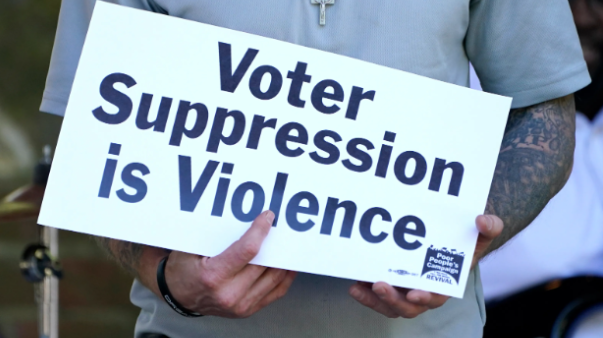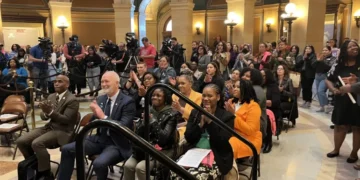Source: The Tennessean
July 8, 2024 Story by: Editor
Recently, Tennessee has introduced stricter voting restrictions for individuals with felony convictions. An estimated 4.6 million Americans, or 2% of the voting population, are disenfranchised due to felony convictions. In Tennessee, over 10% of Black adults are disenfranchised due to prior felony convictions. Additionally, Tennessee denies the right to vote to 21% of all Black citizens of voting age.
Following a state supreme court decision, Tennessee has added further complexities to the already challenging restoration process. To restore their voting rights, individuals with felony convictions must overcome three major obstacles:
- Pay all debts (including court costs, form filing fees, restitution to the victim, and/or outstanding child support obligations),
- Receive a pardon from the Tennessee governor or have a court restore their citizenship, and
- Obtain a signature from a government official (or an employee at the relevant government office) on a form called a Certificate of Restoration (COR).
This system is highly decentralized, requiring individuals to visit several offices. The isolation of these offices increases the likelihood of errors due to a lack of shared databases and minimal communication between offices. For instance, Pamela Moses, a Black woman in Shelby County, Tennessee, was wrongly convicted of election fraud because a communication failure between the Department of Corrections and the probation office led to a manager incorrectly filling out her voter restoration form. Furthermore, the workers in these offices are often unfamiliar with the voter restoration process and unable to guide disenfranchised individuals, leaving them to navigate this complex system on their own. This leads to frustration and a decrease in Black voter turnout due to factors beyond their control.
Voter disenfranchisement is directly linked to an exception in the 14th Amendment. The Tennessee Constitution allows the state legislature to deny voting rights to individuals convicted of “infamous” crimes. Section 2 of the 14th Amendment states, in part:
“Representatives shall be apportioned among the several States according to their respective numbers, counting the whole number of persons in each State But when the right to vote at any election is denied except for participation in rebellion, or other crime, the basis of representation therein shall be reduced in the proportion to the whole number of male citizens twenty-one years of age in such State.”
This clause in the 14th Amendment permits state governments to deprive Black people of their constitutional right to vote. Consequently, the state has no incentive to restore voting rights to convicted felons, as its representation in Congress remains unaffected by the disenfranchisement of this population. In essence, states like Tennessee can revoke the voting rights of individuals with felony convictions, a group disproportionately composed of Black men, without consequence. Source: George Town
















